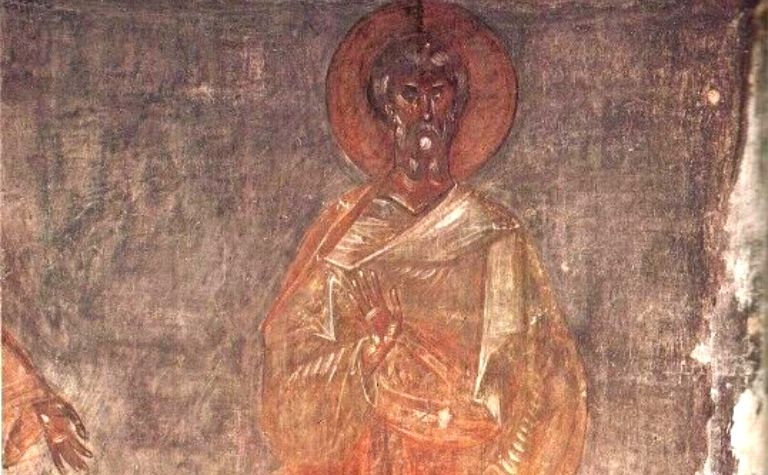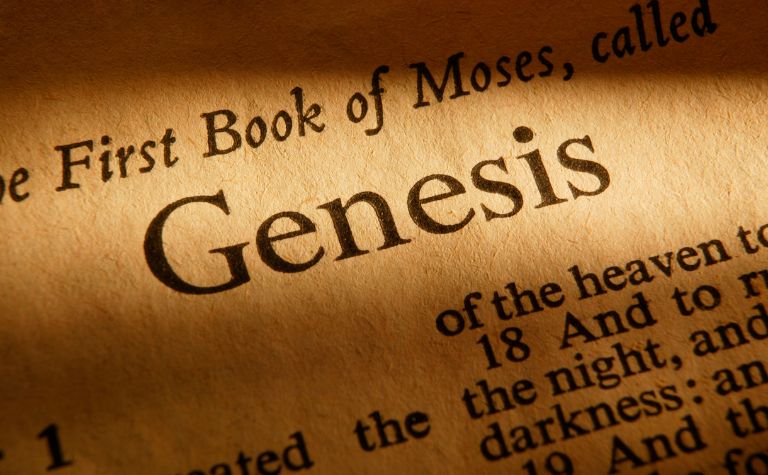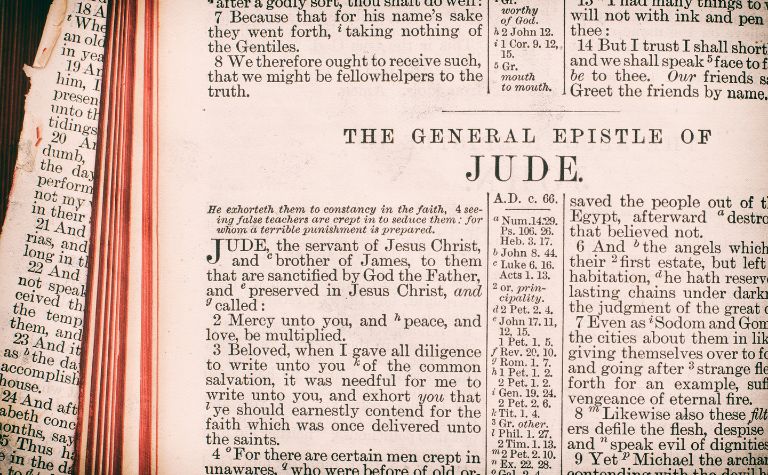The Book of Enoch has fascinated historians, theologians, and other interested readers for over two millennia. Some call it “1 Enoch,” as there are other ancient writings named after the patriarch. Others refer to it as “Ethiopic Enoch” because the only complete version of it is in that language. Whatever a person calls the book, it’s one of the most popular rejected documents in Jewish and Christian history.
The intrigue over the Book of Enoch is partly due to the historical figure named in its title. Genesis includes an incredible description of Enoch in its fifth chapter, which includes a genealogy that mentions his extraordinary faith. The description says Enoch “walked” in fellowship with his God (5:22, 24a). It also reveals that Enoch never physically died but “was not, for God took him” (5:24b, ESV).
In the modern era, the Book of Enoch has captured the imagination of science-fiction fans because of the unusual characters and creatures in the book, like the Watchers, as well as conspiracy theorists who believe orthodox Judaism and the Christian church have unjustly rejected its teachings.
Also see Why Did God Take Enoch? to learn more.

1. The Enoch that Genesis 5 mentions didn’t write the book
Scholars and historians agree that the Book of Enoch is a compilation of writings from different authors. Historians date the oldest sections of the book to 300 B.C. They date the youngest sections to 100 A.D. [1] Therefore, the book’s composition occurred 3,000 to 4,000 years after the historical figure Enoch walked the earth.
The authors of the book wanted readers to believe that the man named Enoch mentioned in Genesis 5 wrote its contents, but it’s obvious that he didn’t. The reason the authors used Enoch’s name is that they knew it would attract a lot of readers who they wanted to persuade to adopt their view on a certain social matter related to priestly marriage (more below).
| Book | Events/Written | Difference |
|---|---|---|
| Nehemiah | ca. 445-410 / 457-444 B.C. | within 50 years |
| Malachi | ca. 470-460 / 457-444 B.C. | within 50 years |
| 1 Enoch | Before 3,000 / 300-100 B.C. | over 3 millennia |
Most scholars believe that the last Old Testament books were Nehemiah and Malachi. Both books were written within decades of the events they describe, and their authors are directly connected to their stories. In contrast, the book of Enoch was written more than a century after Nehemiah and Malachi and the events it describes occurred thousands of years earlier.
2. The Book of Enoch’s popularity doesn’t mean God inspired it
People have found the Book of Enoch fascinating since before the birth of Jesus Christ. For example, the Dead Sea Scrolls, which date to centuries before Christ, included the book. The caves at Qumran, where people found the scrolls contained 11 fragments of the book. Yet, their presence doesn’t imply its inspiration, as many non-biblical writings were among the scrolls.
Over 2,000 years later, people are still interested in the Book of Enoch. People can spot some of the creatures and events it describes in popular culture. For instance, the Nephilim are found in science-fiction television series like The X-Files and video games like Payday 2. Similarly, the Watchers, are found in modern science-fiction novels like James Rollins’ The Bone Labyrinth.
Contrary to the opinions of some conspiracy theorists, the Christian church didn’t decide what books God inspired and which ones he didn’t. The motivation for the selection process didn’t come from consolidating power in the church or the Roman Empire’s political structure. Instead, leaders discovered what books God inspired and compiled them to form the Bible.
The Book of Enoch didn’t demonstrate the marks of inspiration, which is why no historic branch of the Christian faith includes it in their Bible. Although a few early church fathers initially advocated for using the book in churches, mostly because Jude referred to it (see below). Some later changed their minds after learning more about it.
Also see What Does Enoch Mean? to learn more.

3. The purpose of Enoch doesn’t align with the Bible
The Book of Enoch’s purpose is multifaceted because it has various writers, each with unique concerns. Yet, scholars are in general agreement that its purpose isn’t to teach about the God of the Bible, the patriarch mentioned in Genesis 5, or to apply biblical truth to the lives of its readers. This article will discuss the purpose of this section of the Book of Enoch as an example.
The first section of the book, which consists of 36 chapters, is called The Book Watchers. The view that some scholars find persuasive is that the purpose of this section is to argue for a certain view of priestly marriage, which was a controversial issue in the Jewish community about 300 years before Christ.
Some Jews at the time thought priests should only marry the virgin daughters of other clergymen. Advocates believed that confining marriage to a small group of holy servants would keep the office pure. Others thought it was permissible for priests to marry women outside that small demographic.
Some scholars theorize that the author of the Book of Watchers section supported the view that priests should marry the daughters of others priests. Yet, instead of attacking his opponents directly, he condemns the Watchers for participating in inappropriate marriages and sexual relationships. [2]
4. Jews rejected the book as inspired
Sometimes in popular media, ancient books that God didn’t inspire are referred to as “lost,” implying that the people in earlier centuries or millenniums didn’t know about them. The concept of “lost books of the Bible” makes for intriguing titles for television shows, yet it’s not rooted in historical fact.
The word “canon” comes from a Greek word meaning a reed or cane. It refers to something that is measured. Today, people commonly use the word to describe the officially accepted books of the Bible, i.e. which ones showed the marks of Godly inspiration and were, therefore, deemed authoritative. A book that is in the Bible is called “canonical.” A book that isn’t is called “non-canonical.”
The Jewish community, before the time of Christ, knew of the Book of Enoch and rejected it as inspired because it didn’t meet the standard of other inspired Scripture. The book wasn’t lost; it was rejected.
However, people didn’t necessarily ignore the book because it didn’t fit the criteria for inclusion into the Hebrew or Old Testament canon. For example, fragments from the book were found among the Dead Sea Scrolls (see above). Yet, the Septuagint, the Greek translation of the Old Testament, which has non-canonical books like the Apocrypha or Deuterocanon, didn’t include it.
Also see When Was Enoch Born? to learn more.
5. Christians rejected the book as inspired
Just as Jewish tradition rejects the Book of Enoch as canonical, every major historic branch of Christianity rejects it, including the Roman Catholic Church, the Eastern Orthodox Church, and the largest branches of Protestantism, including the Baptist, Pentecostal, Reformed, Methodist, Lutheran, and Presbyterian traditions.
The historical branches of the Christian faith didn’t lose the book; they knew it, read it, and rejected it as inspired. At least one New Testament writer refers to the book (i.e. Jude), but that alone isn’t enough to meet the strict standards of inspiration.
Jude 14-15 reads, “It was also about these that Enoch, the seventh from Adam, prophesied, saying, ‘Behold, the Lord comes with ten thousands of his holy ones, to execute judgment on all and to convict all the ungodly of all their deeds of ungodliness that they have committed in such an ungodly way, and of all the harsh things that ungodly sinners have spoken against him'” (ESV).
Based on Jude’s reference of the book, some early church fathers like Irenaeus and Tertullian, who mistakenly assumed that the patriarch from Genesis was the author, accepted it as canonical. Others, like Origen and Clement of Alexandria, accepted the book at one time but eventually rejected it when they learned more about it.
The Ethiopian Orthodox Tewahedo Church and the Eritrean Orthodox Tewahedo Church are the only confessing Christian churches that accept the Book of Enoch as biblical.
Also see Where Was the Garden of Eden Located? to learn more.

6. Jude’s quotation from Enoch doesn’t mean the book is inspired
New Testament scholar Thomas Schreiner writes, “We do not need to conclude, however, that the entire book is part of the canon of Scripture. Jude probably cited a part of 1 Enoch that he considered to be a genuine prophecy. Perhaps he referred to Enoch because the adversaries treasured the work, and thereby he used their own ammunition against them.” [3]
7. The New Testament influenced Enoch, not vice versa
Some claim that some of the Book of Enoch’s teachings align with the New Testament, so it should be considered inspired.
Wikipedia’s description of the book contains examples of this incorrect line of thinking. For example, one claim says, “There is little doubt that 1 Enoch was influential in molding New Testament doctrines about the Messiah, the Son of Man, the messianic kingdom, demonology, the resurrection, and eschatology.” [4]
The writers who made this claim, and others like it, exaggerate its influence. One scholar writes that “this view has been increasingly questioned, especially since the discovery of the Qumran fragments.”
In fact, many scholars have made a more persuasive argument is that editors later inserted New Testament teaching into the Book of Enoch. Passages that reflect NT teaching “are later (Christian) insertions into [Enoch], and that it was the NT which influenced them rather than vice versa.” [5]
Also see Who Are the Sons of God in Genesis 6? to learn more.
References:
[1] The Compact Dictionary of Biblical Studies. p. 71.
[2] See the discussion in A Companion to the Book of Enoch by Michael Heisler. p. 19-20.
[3] 1, 2 Peter, Jude by Thomas Schreiner. NAC. p. 469.
[4] Source
[5] The Oxford Dictionary of Christianity. p. 459.
Related Questions
The Garden of Eden plays an important role in the early chapters of Genesis. God created Adam, planted the garden, and placed the first man in it (Gen. 2:8). God later created Eve and placed her in...
The story of Noah, the flood, and the ark is one of the most iconic narratives in the Bible. Not only does the magnitude of the floodwaters leave readers awe-struck, but so does the faith that Noah...
